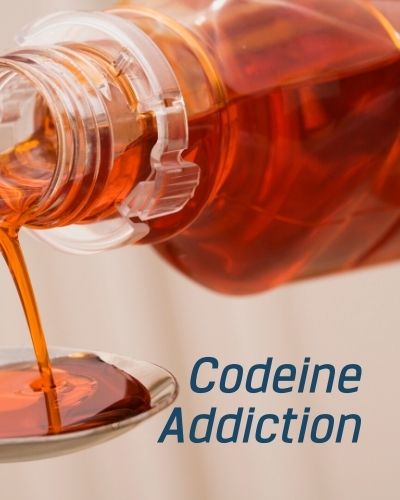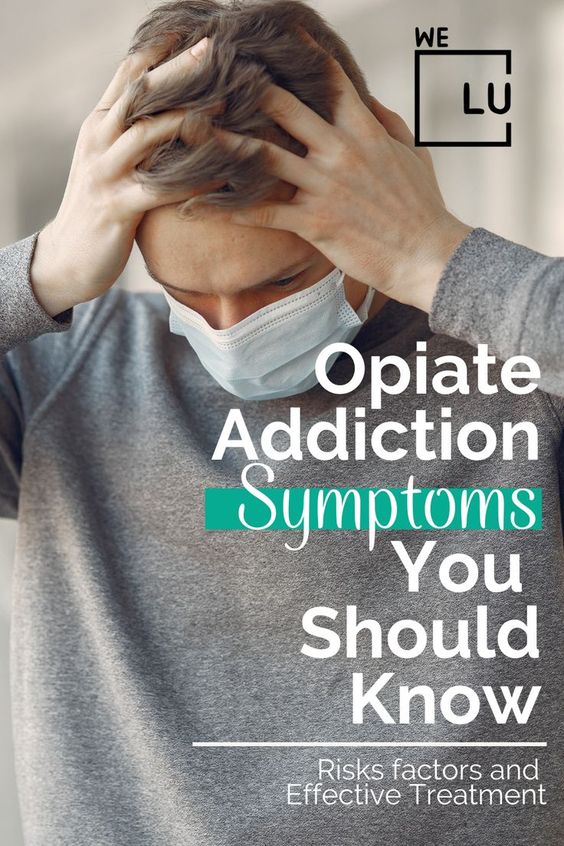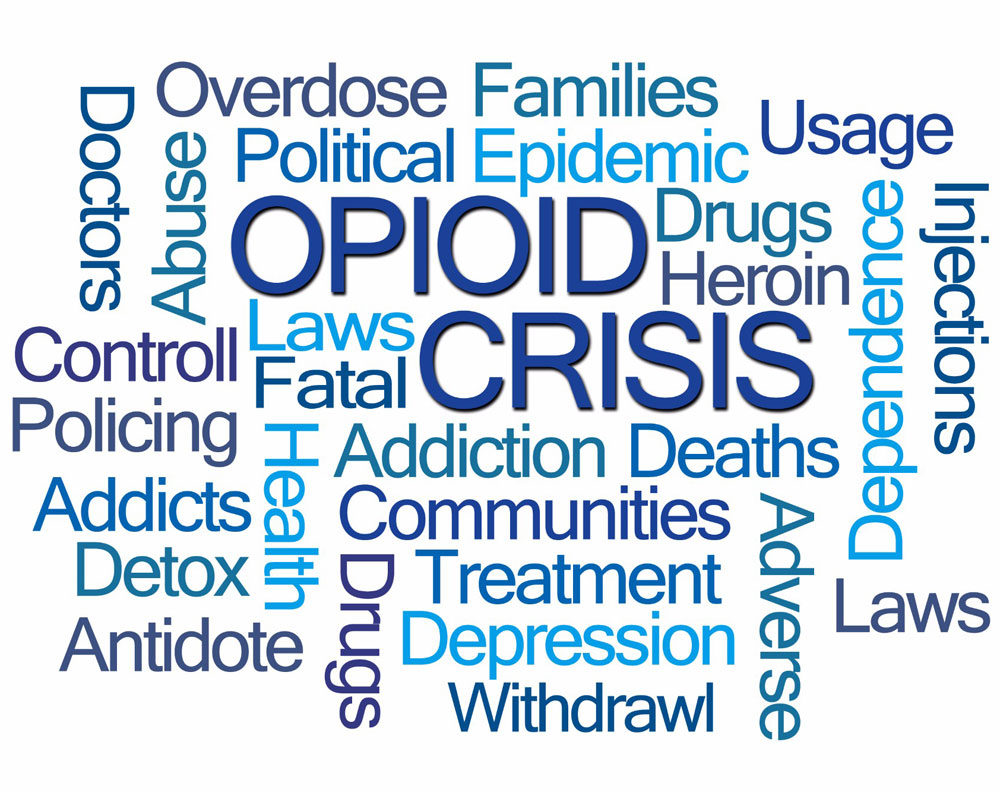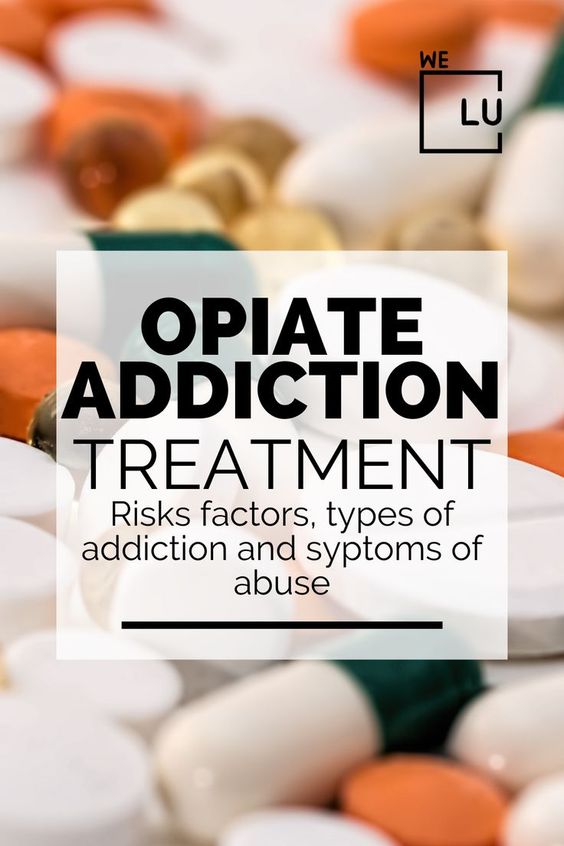What Are Opiates?
Opiates are natural opioids such as heroin, morphine, and codeine. Generally, opioid prescription pain relievers are safe when taken for a short time and as prescribed by a doctor. However, users abuse them due to the euphoria they produce in addition to pain relief. As a result, substance abuse happens when you take it in a different way or in a larger quantity than prescribed or taken without a doctor’s prescription. Substance abuse with this drug can be best medicated in an inpatient program that is accordingly dedicated to opiate addiction treatment.

To clarify, the regular use of opiates—even as prescribed by a doctor—can lead to dependence as well. And when misused, opioid pain relievers can lead to addiction, overdose incidents, and deaths. [1]. Although these terms are often used interchangeably, they are different: Opiates refer to natural opioids such as heroin, morphine, and codeine. Opioids refer to all-natural, semisynthetic, and synthetic opioids.
Opiates include controlled substances that are derived from Opium, which is a chemical that naturally occurs in poppy plants and seeds. These drugs are used clinically for treating mild to severe pain. Unfortunately, because of their intensely calming effects, Opiates have tremendously high rates of abuse which, in many cases, can lead to addiction, even when the medications are prescribed appropriately and taken as directed. Opiate addiction can be hard to beat. However, opiate addiction help treatment programs can help users break their physical and psychological dependence on the drug.
What Is Opiate Addiction?
Opiates have a high potential for causing addiction in some individuals, even when the medications are taken as prescribed. Addiction to opiates can cause life-threatening health problems, including the risk of overdose. An overdose happens when high doses of these drugs cause life-threatening side effects, such as causing breathing to slow or stop. As a result, it may lead to unconsciousness and death. Chronic opiate use can lead to the development of potentially incapacitating dependence.
The individual indicators of opiate addiction might seem harmless in isolation and passed off as some other health condition. Learning how to recognize this kind of substance abuse disorder can save someone’s life. Both licit and illicit types of opioids carry a high risk of being habit-forming. When opiates interact with an endorphin receptor, they cause heightened levels of endorphin activity. As a result, it creates a powerful high, followed by an artificial feeling of calm and relaxation.
What are the Stages of Opiate Addiction?
Opiate tolerance happens when a person using opiates begins to experience a reduced response to medication, requiring more opioids to experience the same effect.
Opiate dependence happens when the body adjusts its normal functioning around regular opioid use. Unpleasant physical symptoms occur when medication is stopped.
Opiate addiction happens when attempts to cut down or control use are unsuccessful or when used results in social problems and a failure to fulfill obligations at work, school, and home. Opiate addiction often comes after the person has developed opiate tolerance and dependence, making it physically challenging to stop opiate use and increasing withdrawal risk.
Opiate Addiction Symptoms And Signs
Chronic use of opiates can indefinitely result in drug dependence—a physical addiction can develop in four weeks, but psychological dependence can develop in as little as two days. Unaware of the risks of these fast-acting drugs, individuals may not notice when this dependence happens. Family members should watch out for these warning signs of opiate abuse:
Opiate Addiction Statistics
Pharmaceutical firms promised the medical community that opioid painkillers wouldn’t lead to drug addiction in the late 1990s, and doctors started prescribing them more often. Prior to it becoming obvious that these drugs could really be highly addictive, there was a significant increase in the prescription of opioid prescriptions, which resulted in widespread misuse of both prescription and over-the-counter opioids.
760,000
Since 1999, drug overdoses have claimed the lives of more than 760,000 people.
Source: HHS
75%
In 2020, opioids were implicated in about 75% of drug overdose fatalities.
Source: HHS
1.6 Million
1.6 million people had an opioid use disorder in the past year.
Source: HHS

Get Your Life Back
Find Hope & Recovery. Get Safe Comfortable Detox, Addiction Rehab & Mental Health Dual Diagnosis High-Quality Care at the We Level Up Treatment Centers Network.
Hotline (877) 378-4154Long-Term Physical Symptoms
- Gastric problems
- Blood disorders
- Respiratory depression
- Immune system destruction
Psychological Symptoms
- Anxiety attacks
- Fleeting moments of euphoria
- Psychosis
- Depression
- Irritability
- Lowered motivation
Opiate Addict Behavior
If you believe your loved one is abusing opiates, he may also be exhibiting various behavioral symptoms. For example, you may notice that he takes greater amounts of the drug than originally intended and has had unsuccessful attempts to decrease his dosage. You may also notice that he spends most of his time trying to obtain, use, or recover from the drug and has lost sense of all his other priorities. Frequently, opiate users seek out the drug compulsively and “double up” on doctors and pharmacies. This is often a significant indication of opiate addiction.
Get Help. Get Better. Get Your Life Back.
Searching for Accredited Drug & Alcohol Rehab Centers Near You? Or Mental Health Support?
Even if you have failed previously, relapsed, or are in a difficult crisis, we stand ready to support you. Our trusted behavioral health specialists will not give up on you. Call us when you feel ready or want someone to speak to about therapy alternatives to change your life. Even if we cannot assist you, we will lead you wherever you can get support. There is no obligation. Call our hotline today.
FREE Addiction Hotline – Call 24/7Effects Of Opiates
Without awareness, you may become addicted to prescription opioids that were given to you for a medical condition. Consequently, you will start using opiate drugs intentionally for the high they can provide. Opiates’ effects on the brain are strong as they can deplete certain chemicals with continued abuse. Classic signs of opiate addiction can be eventually, your brain will become dependent on opioids to function normally, then, you will start needing more opioids just to ward off withdrawal and feel “normal.”

Short-Term Effects of Opiate:
- Pain relief
- Drowsiness
- Feelings of euphoria
- Sedation
- Opiate abusers will experience sporadic periods of “nodding off” as they slip in and out of consciousness
Long-Term Effects of Opiate:
- Nausea and vomiting
- Abdominal distention and bloating
- Constipation
- Liver damage
- Brain damage due to hypoxia
- Addiction
Additionally, opioid use can lead to death because of opioids on the part of the brain which regulates breathing. [2] An opioid overdose can be identified by a combination of three signs and symptoms:
- Pinpoint pupils
- Unconsciousness
- Difficulties with breathing
Causes Of Opiate And Opioid Addiction
In 2018 in the United States, about 808,000 people reported using heroin during the past year. Similarly, about 11.4 million people used narcotic pain relievers without a prescription. [2] Narcotic pain relievers include:
- Codeine
- Heroin
- Hydrocodone (Vicodin)
- Hydromorphone (Dilaudid)
- Methadone
- Meperidine (Demerol)
- Morphine
- Oxycodone (Percocet or Oxycontin)
You will become addicted to opiates once it develops physical dependence. In other words, you rely on the drug to prevent withdrawal symptoms that may affect your body negatively. And over time, you will need more of the drug to obtain the same effect. That is to say, you already have drug tolerance. However, to tell when physical dependence develops varies with each person. And, once you stop using the opiate after long-term use, your body will need more time to recover.
Opiate Withdrawal
The biggest complication of opiate withdrawal is returning to drug use. In fact, most opiate overdose deaths occur in people who have just detoxed. The first few days are the most dangerous because those who have just gone through opiate withdrawal can overdose on a much smaller dose than they used. During opiate withdrawal, your tolerance to the drug is reduced. Furthermore, if you stop or cut back on these drugs after heavy use for a few weeks or more, you will have several Opiate withdrawal symptoms which may include:
- Agitation
- Anxiety
- Muscle aches
- Increased tearing
- Insomnia
- Runny nose
- Sweating
- Yawning
- Abdominal cramping
- Diarrhea
- Dilated pupils
- Goosebumps
- Nausea
- Vomiting
First-class Facilities & Amenities
World-class High-Quality Addiction & Mental Health Rehabilitation Treatment
Rehab Centers TourRenowned Addiction Centers. Serene Private Facilities. Inpatient rehab programs vary.
Addiction Helpline (877) 378-4154Proven recovery success experience, backed by a Team w/ History of:
15+
Years of Unified Experience
100s
5-Star Reviews Across Our Centers
10K
Recovery Success Stories Across Our Network
- Low Patient to Therapist Ratio
- Onsite Medical Detox Center
- Comprehensive Dual-Diagnosis Treatment
- Complimentary Family & Alumni Programs
- Coaching, Recovery & Personal Development Events
Opiate Addiction Treatment
A person’s opiate addiction treatment experience often depends on the severity of the addiction and co-occurring conditions.
Behavioral therapies used in opiate treatment New Jersey
- Cognitive-behavioral therapy seeks to help patients recognize, avoid, and cope with the situations in which they’re most likely to use drugs.
- Contingency management uses positive reinforcement such as providing rewards or privileges for remaining drug-free, attending and participating in counseling sessions or taking opiate addiction treatment medications as prescribed.
- Motivational enhancement therapy uses strategies to make the most of people’s readiness to change their behavior and enter opiates addiction treatment.
- Family therapy helps people with drug use problems and their families, addresses drug use patterns, and improves overall family functioning.
- Twelve-step facilitation (TSF) is an individual therapy typically delivered in 12 weekly sessions to prepare people to engage in 12-step mutual support programs.
Medication-assisted treatment (MAT) used in opiate addiction treatment
MAT is an effective Opiate Addiction Treatment for individuals with opiate abuse. It involves the use of medication along with counseling and behavioral therapies.
Methadone: This prevents withdrawal symptoms and reduces cravings. It is available only in specially regulated clinics.
Buprenorphine: This blocks the effects of other opioids, reduces or eliminates withdrawal symptoms, and reduces cravings.
Naltrexone (Vivitrol): This blocks the effects of other opioids, preventing euphoria. It is available from office-based providers in pill form or a monthly injection.
Both Methadone and Suboxone are Schedule II controlled substances. They carry a risk of withdrawal and a high potential for misuse when used. Therefore, their administration is closely monitored and controlled when starting these medications. In many cases, the medical professional administering the drug will require that the individual only be given at their facility. They will even observe the patient take the medication. Over time, the individual may be issued a few doses at a time to administer themselves.
World-class, Accredited, 5-Star Reviewed, Effective Addiction & Mental Health Programs. Complete Behavioral Health Inpatient Rehab, Detox plus Co-occuring Disorders Therapy.
CALL (877) 378-4154End the Addiction Pain. End the Emotional Rollercoaster. Get Your Life Back. Start Drug, Alcohol & Dual Diagnosis Mental Health Treatment Now. Get Free No-obligation Guidance by Substance Abuse Specialists Who Understand Addiction & Mental Health Recovery & Know How to Help.
Opiate Addiction Treatment And Detox At We Level Up NJ
Clearing opiates from the body and overcoming withdrawal symptoms is the goal of opiate detox, which is the first step of any opiates addiction treatment center.
Firstly, you need to go to detox to obtain recovery, in a safe and medically supervised setting. We Level Up NJ Detox center medically assist clients to clear their systems of addictive substances including opiates.
For anyone who suffers from addiction, just the thought of having to stop using can cause severe mental distress. But, with the help of a medical detox center, the medical detox process is managed. A comprehensive team prescribing MAT or medication-assisted treatment can alleviate your withdrawal pains while monitoring your health 24 hours. Assuring both your safety and comfort.
Moreover, our residential care program after the detox will slowly and effectively introduce the individual into an atmosphere of therapeutic growth. Marked by Master’s level therapists, clinicians, group counselors, psychiatrists, and a community of like-minded individuals with the same aim to attain sobriety and live a great life.
Opiate Addiction Treatment FAQs
-
How to know if I am addicted to Opiates?
Uncontrollable cravings and an inability to stop using opioids, despite the harm they cause to one’s relationships and finances, are signs of being Opiate addicts.
-
How long does it take to get addicted to Opiates?
Opioids are among the strongest medications in the world, and dependence can set in within just five days. Opioids on prescription share chemical similarities with heroin, one of the most addictive substances.
-
What is the shot for Opiate addiction?
A monthly extended-release injection is called BUP-XR. The Food and Drug Administration (FDA) approved the use of daily doses of buprenorphine in the treatment of opioid use disorders in 2002. (OUD)
-
Why are Opiates so addictive?
Endorphins, the feel-good neurotransmitters in your brain, are released as a result of opioid use. Endorphins produce a fleeting but potent sense of well-being by decreasing pain perception and increasing pleasure. You might find yourself yearning for those positive feelings to return as quickly as possible after an opiate dose wears off. The initial step toward a potential addiction is being taken here.

Some of the many modalities applied and practiced within our opiate addiction treatment facility are:
Clients in our inpatient drug rehab here at We Level Up NJ Treatment Center will live comfortably within the facility during this crucial and fragile time. This supportive environment is designed to give patients 24-hour care for sobriety, removing temptations for relapse and applying an air of recovery into every component of the treatment timeline, including opiates addiction treatment. At We Level Up NJ, we find that when patients are living in a supportive community, especially during their early recovery process, they can truly focus on what matters most: their recovery.
Above all, we’re passionate about providing the best care and treatment options for clients and their families. Our treatment team is dedicated to giving each and every client the best chance for recovery. We know that finding a trusted addiction and mental health rehabilitation center is a critical part of finding the best opiate addiction treatment options. A great way to weed through to uncover the best recovery programs should include seeking accredited organizations like We Level Up.
Most importantly, if you or a loved one is addicted to an opiate, you may reach out to us and learn more about our rehab for opiate addiction. Our counselors are always ready to answer any of your possible questions.
Experience Transformative Recovery at the We Level Up Treatment Center.
See our authentic success stories. Get inspired. Get the help you deserve.



Start a New Life
Begin with a free call to an addiction & behavioral health treatment advisor. Learn more about our dual-diagnosis programs. The We Level Up treatment center network delivers various recovery programs at each treatment facility. Call to learn more.
- Personalized Care
- Caring Accountable Staff
- World-class Amenities
- Licensed & Accredited
- Renowned w/ 5-Star Reviews
We’ll Call You
Search We Level Up NJ Opiate Addiction Treatment Topics & Resources
Sources:
[1] https://www.drugabuse.gov/drug-topics/opioids – Opiate Addiction Treatment – National Institute on Drug Abuse
[2] https://medlineplus.gov/ency/article/000949.htm – Opiate Addiction Treatment – U.S. National Library of Medicine
Center for Behavioral Health Statistics and Quality (2016)
Centers for Disease Control and Prevention (CDC). NVSS, Mortality File
World Health Organization. Proposal for the inclusion of methadone in the WHO models list of essential medicines. (2005)
RP Mattick et al. Cochrane Database of Systematic Reviews (2009)
RP Mattick et al. Cochrane Database of Systematic Reviews (2014)
Schwartz et al. Am J Public Health (2013)
ACOG & ASAM. (2012)
